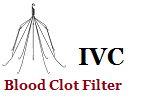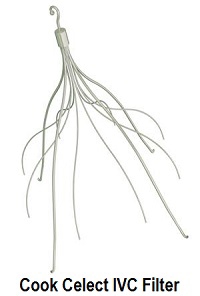 Virtually every lawsuit involves a judge’s issuing key rulings that impact the outcome. A judge’s decisions for the court can hinder plaintiffs – such as the recent judge in the Mirena birth control cases who ruled to exclude all the plaintiffs’ experts, which challenges the hopes of women who have alleged Mirena injury. On the other hand, a judge’s rulings can also help plaintiffs. A recent judge’s ruling in the Cook IVC filter multidistrict litigation has allowed plaintiffs to continue building their cases.
Virtually every lawsuit involves a judge’s issuing key rulings that impact the outcome. A judge’s decisions for the court can hinder plaintiffs – such as the recent judge in the Mirena birth control cases who ruled to exclude all the plaintiffs’ experts, which challenges the hopes of women who have alleged Mirena injury. On the other hand, a judge’s rulings can also help plaintiffs. A recent judge’s ruling in the Cook IVC filter multidistrict litigation has allowed plaintiffs to continue building their cases.“Discovery” Allowed in Cook’s Reports to FDA
In May 2016 in the Cook IVC filter multidistrict litigation set in Indiana, a federal judge refused to bar Discovery involving plaintiffs’ allegations that Cook failed to file reports to the FDA that showed bad results with some Cook IVC filters.
Adverse Device Events allowed in IVC Filter Cases
Plaintiffs in the Cook IVC filter cases requested Discovery relating to information Cook Medical delivered to the FDA regarding the outcomes of patients implanted with Cook IVC filters. The plaintiffs’ group believes Cook underreported IVC filter device problems to the FDA. The group wants access (Discovery) to all information regarding whatever Cook shared or possibly failed to share with FDA.
Cook Medical requests Protective Order to Conceal Reports
Cook Medical responded by filing a motion for “protective order,” which would have effectively barred Discovery of reports Cook made to FDA. Cook argued that it had no duty to produce this information to the plaintiffs, based on some recent court decisions.
Cook IVC Filter MDL Magistrate Judge Tim Baker disagreed with Cook’s attorneys. Judge Baker ruled that this information requested by plaintiffs is potentially relevant to the claims in the case. He ruled that Cook has an obligation under the Rules of Civil Procedure to produce this information. Since Judge Baker denied Cook’s motion, the company is now required to produce this FDA reporting information to attorney David Matthews and other lawyers representing plaintiffs in the MDL.
Discovery
Once a lawsuit is filed, defendants have a chance to “answer” or enter a plea to the complaint, either by admitting the complaint is true or by denying its veracity. Following the filing of these “pleadings,” the battling parties engage in formal discovery. Discovery in civil litigation is the exchange of documents and information between the parties. The Rules of Civil Procedure require Discovery. This occurs when one side writes questions (Interrogatories) or requests for documents (Requests for Production of Documents). Unless there is a compelling reason to withhold the information, the other side must then prepare written answers and make all requested documents available to the requesting party. The parties then use that information to build their cases for trial.
Discovery Decision Impacts IVC Filter Cases
The court’s decision allows the plaintiffs to “discover” information Cook sent to FDA regarding Cook IVC filters and adverse events. Plaintiffs’ cases may be aided if those Cook reports to FDA are false, misleading or incomplete. Plaintiffs’ petitions now charge that Cook misrepresented IVC filter efficacy and safety, and that Cook failed to adequately warn of the risks.
IVC Filter Problems Underreported?
If it turns out that Cook underreported problems with the Cook IVC filter, the defense of the learned intermediary doctrine could be stripped from the case. The learned intermediary doctrine means that a medical device manufacturer cannot be liable for negligence if it provides all necessary information to a “learned intermediary” such as the doctor or implanting surgeon. It is that learned intermediary’s responsibility to inform the patient of the risk-benefit analysis, the benefits and risks of using the medical device. Medical device makers typically argue to the court that they notified the doctor (and therefore the patient) about the risks involved; it is the doctor’s responsibility to explain those risks to the patient.
However, if the IVC filter (or other device) maker underreported problems to the FDA, the learned intermediary doctrine becomes meaningless. The physician could not have informed the patient of the real risk-benefit profile if only limited information were available, especially if that information were withheld. Consequently, if Cook Medical can be shown to have underreported or misreported IVC filter problems to FDA, its defense could be substantially weakened.
Related
- Cook IVC Filter Attorney
- IVC Filter Lawsuit
- IVC Filters not FDA Approved
- 2000 General Accounting Office Report
FDA Reporting Regulations:
Medical device makers must report to FDA (1) within 30 calendar days of learning information that reasonably suggests one of their devices may have caused or contributed to a death, serious injury, or malfunction and (2) within 5 working days if an event requires action other than routine maintenance or service to prevent a public health problem.
FacebookTwitter
by Matthews & Associates




